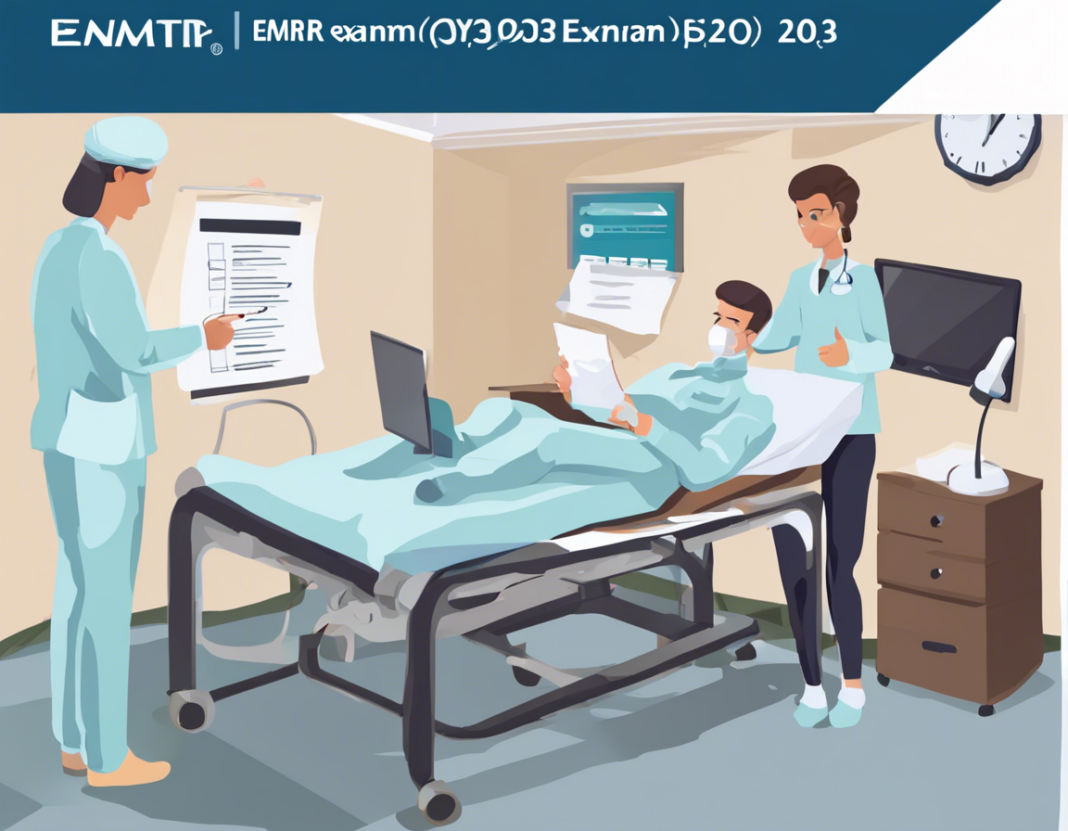Aspiring Emergency Medical Response Specialists (EMRS) have a challenging yet rewarding path ahead of them as they prepare for the 2023 exam. This comprehensive guide is designed to provide you with the necessary information, study tips, and resources to help you succeed in this critical examination.
Understanding the EMRS Exam
The EMRS exam is a rigorous assessment designed to evaluate a candidate’s knowledge, skills, and readiness to provide emergency medical care in various settings. This exam covers a wide range of topics, including anatomy, physiology, medical terminology, emergency procedures, trauma care, pharmacology, and patient assessment.
Topics Covered in the EMRS Exam
- Anatomy and Physiology
- Understand the structure and function of the human body systems.
-
Learn about major organs, tissues, and their interconnections.
-
Medical Terminology
- Familiarize yourself with common medical terms and abbreviations.
-
Master the language used in medical documentation and communication.
-
Emergency Procedures
- Learn how to respond to various medical emergencies, such as cardiac arrest, strokes, and respiratory distress.
-
Understand the importance of rapid and effective intervention in emergency situations.
-
Trauma Care
- Gain knowledge of managing traumatic injuries, including bleeding control, fracture stabilization, and wound care.
-
Practice triaging patients based on the severity of their injuries.
-
Pharmacology
- Understand the use of common medications in emergency care.
-
Learn about dosage calculations, drug interactions, and administration routes.
-
Patient Assessment
- Develop skills in conducting thorough patient assessments.
- Practice gathering relevant medical history, performing physical exams, and documenting findings.
Tips for Studying for the EMRS Exam
-
Create a Study Schedule: Allocate dedicated time each day to study different topics covered in the exam.
-
Use Multiple Resources: Utilize textbooks, online resources, practice exams, and flashcards to reinforce your understanding.
-
Practice Hands-On Skills: Seek opportunities to practice emergency procedures, such as CPR, bandaging, and splinting.
-
Join Study Groups: Collaborate with peers to discuss and review challenging concepts together.
-
Take Breaks: Incorporate short breaks during study sessions to prevent burnout and maintain focus.
-
Review Regularly: Continuously review previously covered material to reinforce retention.
Resources for EMRS Exam Preparation
-
Textbooks: “Emergency Medical Responder: Your First Response in Emergency Care” by American Academy of Orthopaedic Surgeons (AAOS).
-
Online Courses: Platforms like Coursera, Udemy, and Khan Academy offer courses on emergency medical care topics.
-
Practice Exams: Access sample questions and practice exams to assess your knowledge and identify areas for improvement.
-
Simulation Labs: Some institutions provide access to simulation labs for hands-on practice of emergency procedures.
-
EMRS Study Guides: Utilize study guides specifically designed for EMRS exam preparation.
Frequently Asked Questions (FAQs) About EMRS Exam
1. What are the eligibility criteria for the EMRS exam?
- To be eligible for the EMRS exam, candidates must typically complete a certified EMRS training program and meet any additional requirements set by the certifying body.
2. How is the EMRS exam structured?
- The EMRS exam usually consists of multiple-choice questions and practical skills assessments.
3. How can I register for the EMRS exam?
- Registration procedures for the EMRS exam vary by certifying body. Candidates should visit the official website for specific instructions.
4. What is the passing score for the EMRS exam?
- The passing score for the EMRS exam is determined by the certifying body and may vary from one organization to another.
5. How long is the EMRS certification valid?
- EMRS certifications typically need to be renewed every few years through continuing education and/or re-examination.
6. Are there any prerequisites for taking the EMRS exam?
- Some certifying bodies may require candidates to hold a current CPR certification or complete specific prerequisite courses before taking the EMRS exam.
7. Can I retake the EMRS exam if I fail?
- Policies regarding exam retakes vary by certifying body. Candidates should refer to the specific guidelines provided by the organization.
8. What is the role of an Emergency Medical Response Specialist?
- An EMRS is trained to provide immediate medical care in emergency situations, stabilize patients, and assist in their transport to healthcare facilities.
9. How can I best prepare for the practical skills assessment in the EMRS exam?
- Practice regularly with hands-on simulations, review procedural guidelines, and seek feedback from experienced professionals to excel in the practical skills assessment.
10. Are there study materials specifically designed for the EMRS exam?
- Yes, there are EMRS-specific study guides, textbooks, and online resources tailored to help candidates prepare for the exam effectively.
Preparation for the EMRS exam requires dedication, hard work, and a comprehensive understanding of emergency medical care principles. By following a structured study plan, utilizing various resources, and practicing hands-on skills, you can enhance your readiness and confidence to excel in this crucial examination. Remember to stay focused, maintain a positive attitude, and seek support from peers and mentors throughout your preparation journey.




